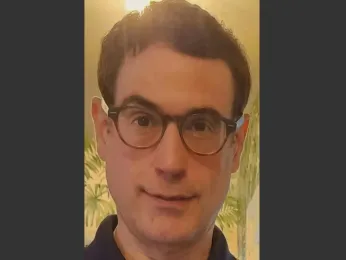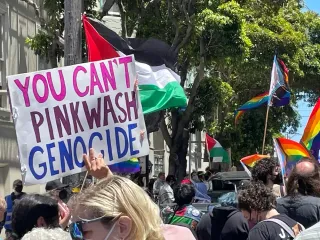
Sep 17
Guest Opinion: After Pride: Mpox still deserves attention
Scott Bertani READ TIME: 4 MIN.
Mpox hasn’t gone away – and neither has our need to care.
Pride Month may be behind us, but events aren’t slowing down quite yet, including the upcoming annual Folsom and Castro street fairs in San Francisco. These events usher in another last-minute round of travel, connection, and reasons to stay tuned-in to our bodies and our health. And this moment, nestled between big gatherings and late-summer plans, is as good a time as any to talk about mpox, not just as statistics or case counts, but as something real and lived.
Mpox still matters to the wellness of the LGBTQ+ community. Talking about it – even when headlines aren’t – with friends, partners, or providers helps us stay safer and more connected to what matters in our health; just like we are in other parts of LGBTQ+ care and prevention. Because real care doesn’t start with a prescription or a shot. And mpox isn’t just a medical concern.
Health starts with how we talk and how we listen. Open, judgment-free conversations make it easier for people to speak up, share what they’re feeling, and work through it with their partners. That kind of care builds trust and keeps us better connected.
That’s important because mpox is still here. Mpox is a contagious virus that spreads through close personal contact, including sex. Though it’s not classified as a sexually transmitted infection, the patterns are clear: When bodies collide – especially in ways that involve prolonged skin-to-skin exposure and mpox is present – transmission can happen. Many people report their first symptoms showing up at sites of sexual contact.
Mpox cases have primarily been seen among sexual and social networks of gay, bisexual, and same-gender-loving men, as well as transgender and nonbinary individuals – especially those with uncontrolled HIV. It has also affected caregivers and women. Nearly all cases involve Clade II, the less severe strain still circulating in the U.S. A very few cases of Clade I – a more serious strain – were identified in late 2024 and early 2025 in people who had recently traveled outside the U.S. No signs of wider spread have followed.
Because early framing of the virus relied on language and imagery that fueled stigma – particularly toward African nations and then LGBTQ+ people – the name change to mpox was a deliberate step to correct potential and unnecessary associations. Mpox doesn’t respect borders or identities, but our response can. And it should be rooted in truth, not stigma.
In the Bay Area, mpox has been making a return. San Francisco has reported 29 new cases, from late June through September 10, a notable uptick from the earlier pace of just one per month. Most have been mild and linked to Clade II. As the Bay Area Reporter noted in an article last month, public health officials stated that most of those cases were among people who had been vaccinated.
In spite of that, vaccination remains one of the most effective tools we have. It not only helps lower the chance of infection, but it seems to further reduce symptoms if someone does get mpox. The Jynneos vaccine is a two-dose series – and that second dose matters. It’s ideally given at least 28 days after the first, but even if more time has passed, you can always go back and get it. In an August 14 health update for providers, San Francisco public health officials made it clear: Jynneos continues to offer the best protection against the virus.
There are many other ways we can all unite our health this late summer and early fall by looking out for ourselves and each other. If you or a partner notices a new or unexplained rash, or just aren’t feeling quite right, it’s OK to skip a beat and reach out to a provider or someone you trust. Make sure to pay attention to symptoms like painful sores, flu-like symptoms, or pain or discomfort when going to the bathroom. And remember, mpox has a long incubation period, up to three weeks. So, if something feels off, don’t wait; reach out.
As summer winds down, keep celebrating – and stay connected to your body and your people. With lots more gatherings and holidays up ahead, it’s a great time to continue leading with care and community.
The National Coalition for LGBTQ Health represents the entire LGBTQ+ community, including clinicians, researchers, service providers, and advocates who serve individuals of every sexual orientation, gender, gender identity, race, ethnicity, and age, regardless of disability, income, education, and geography. The coalition works to improve LGBTQ health and well-being through advocacy, medical and consumer education, communications, capacity building, and health services research. It also hosts a national Mpox Resource Center and leads The Q National LGBTQ Health Training Center, which provides cultural competency training and clinical resources to help providers deliver patient-affirming care. Learn more at healthlgbtq.org .
Scott Bertani, a gay man, is director of advocacy at the National Coalition for LGBTQ Health. Earlier versions of this piece were published in other LGBTQ outlets.



